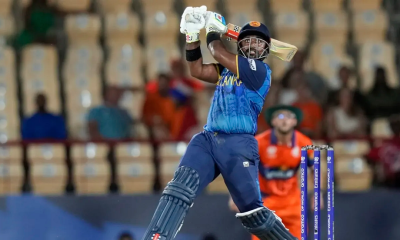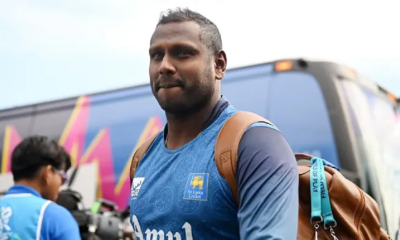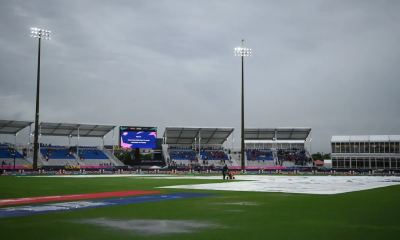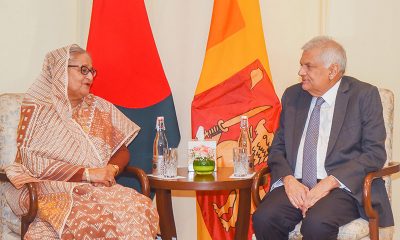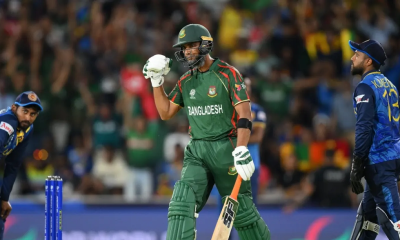Features
The Pharmaceuticals Market in Sri Lanka: Ending the Chaos

By Dr. Dayanath Jayasuriya, President’s Counsel
In 1949 whist debating the Food and Drugs Bill, Dr. N. M. Perera stated, with almost prophetic vision, that “there has been all sorts of muck, if you will permit the use of the word, labeled under the name of drugs in this country.”
More than 70 years later these words are equally true if one were to look at what is available in some places – drugs banned even in the country of origin, expired drugs, drugs in relabeled packages, drugs unregistered with the regulatory authority, drugs of dubious quality, drugs the importation of which specialist committees have cautioned against and drugs from certain manufacturers not known for good quality production facilities.
The list can be much longer. Public sector hospital pharmacies lack even some of the basic essential medicines. In-patients are asked to bring with them cotton wool to surgical equipment if planned surgeries are to take place. Daily qualified specialists as well as young doctors leave the country in search of greener pastures.
From the late 1950s and early 1960s onward Sri Lanka gradually developed a system for the regulation of pharmaceutical products. Initial efforts were due to the singularly impressive work of Professor Senaka Bibile who developed a hospital formulary to rationalize the availability of drugs in the hospitals. Later during his tenure as the founder Chairman of the State Pharmaceuticals Corporation, he found good and relatively inexpensive sources to partially satisfy the country’s demand for imported drugs.
With trade liberalization in 1978, there was an exponential increase in the number and type of medicines that flowed into the country.
In 1980, Sri Lanka enacted the Cosmetics, Devices and Drugs Act. It was based on the Canadian regulatory system. Provisions in the Act and regulations that were enacted five years later provided the basic model of legislation required for developing countries (see, further, D. C. Jayasuriya, Regulation of Pharmaceuticals in Developing Countries: Legal issues and Approaches, WHO, Geneva, 1985). As the country gradually progressed with the expansion of the health-care system, the Act required further amendments but many years later an ill-advised measure was taken to repeal it lock, stock and barrel.
In early 2005 I published a 156 page book entitled Towards a National Drug Policy: Sri Lankan Perspectives. Its nine chapters enumerated measures to be taken based on good practices.
During the drafting of the National Medicines Regulatory Authority Bill, which later became an Act of Parliament (No. 5 of 2015), various groups lobbying to dilute its clauses were very much active. A few professionals posing as independent consultants or experts either lacked expertise in legal drafting or clearly had conflicts of interest. The strongest lobby was for the exclusion of cosmetics from the purview of the legislation, opening the flood gates to import all kinds of products at great cost to the country.
In 2015, a National Medicinal Drug Policy for Sri Lanka was adopted. Its Preamble stated that “Sri Lanka had a partly written Drug policy from the 1960s. It was “written” as elements of a policy, beginning from selection of drugs for the government drug supply and the Ceylon Hospitals formulary in early 1960s, the Bibile-Wickremasinghe report in 1971, the Cosmetics Devices and Drugs Act (1980). However, there was no comprehensive document. There were attempts to develop a NMDP in 1991 & 1996; while the documents were accepted by the Ministry of Health, they did not reach the final step of cabinet approval.” The Policy stated as follows:
A National Standing Committee will be appointed by the Ministry on the recommendation of the Director General of Health Services, comprising all stakeholders to oversee the implementation of the National Medicinal Drug Policy (NMDP).
The Essential Medicines List will prioritize the medicines that are important. The medicines will be selected according to valid scientific evidence, the disease pattern in the country and cost-effectiveness. A standing committee comprising all stakeholders will be established to define and regularly update the National Essential Medicines List. It will formulate, review and update Standard Treatment Guidelines, Drug Index, the Sri Lankan Formulary and Government Drug procurement Documents.
A pricing policy/ mechanism should be adopted to ensure affordability. Retail pricing should be based on a dispensing fee rather than cost markup. Legislation requiring generic prescribing and allowing cost effective generic substitution with the consent of the patient (and where possible informing the doctor) should be enacted.
The state should provide sufficient funding for procurement and supply of necessary medicines with priority for essential medicines, monitor appropriate use and prevent waste. Public and private sector health insurance schemes will be encouraged to develop reimbursable lists of medicines.
The responsibility for ensuring a continuous availability of Essential Medicines in the country is a shared public/private sector responsibility. The state should continue centralized bulk purchase and supply to its institutions. Preference should be given to local manufacturers in supply of medicines to the state sector. Good pharmaceutical procurement practices and management of the supply chain should be enacted for both the public and private sector. There should be a private/public mix of suppliers to the private sector
The regulatory authority should have transparent mechanisms and adequate human resources. Medicines should be registered based on the criteria of quality, safety, efficacy, need and cost effectiveness. An accredited drug quality Assurance Laboratory should function within the authority with appropriate fees for services keeping with WHO Good Clinical Practice Guidelines.
Once the NMDP is adopted, it will be the responsibility of the Minister of Health on the recommendation of the Director General of Health Services, to appoint the National Standing Committee within three months to oversee the implementation of the policy. This policy will be reviewed, and revised if necessary, in five years.
A few months ago guidelines were issued on the tender process for drug procurement. Work on this commenced in 2004 when I was a founder director of the National Procurement Agency set up by the then President HE Chandrika Bandaranaike Kumaratunga.
Quality control problems with a few drugs manufactured in India have been well documented in the past but what is of concern is that still reports appear.
For instance, The Washington Post of April 4, 2023 had an analysis entitled ‘Just How Dangerous Are India’s Generic Drugs?’ The commentator noted: “For a nation that seeks to claim the mantle of “pharmacy to the world,” India is scandalously short on regulatory oversight. In the last six months alone, its generic cough syrups have killed dozens of children, its eye drops have caused blindness and its chemotherapy drugs have been contaminated. The children who died — mostly under the age of five years — were given Indian-made over-the-counter products contaminated with industrial solvents and antifreeze agents that are fatal in even small amounts.
The eye drops contained extensively drug-resistant bacteria. So far 68 patients across 16 US states have been affected. Three people died, several had to have their eyeballs removed, some went blind, the Centers for Disease Control and Prevention reported on March 21. The Indian company issued a voluntary nationwide recall for the drops.
The Wall Street Journal of June 19, 2023 reported that drug shortages stem from quality problems in Indian factories; eye drops, chemotherapy drugs raise concerns about generic products.
Whilst Sri Lankans have to be thankful to India for a generous credit line to import drugs, importation must be done in a structured manner under the oversight of qualified medical specialists.
The priority now is to rapidly compile an inventory of all drugs available in Sri Lanka. Pharmacies must be under a strict legal obligation to provide within a stipulated time-frame material information of the drugs in stock and new drugs on order. Non-compliance must be severely dealt with without fear or favour. Bespoken software is available to systematically enter the data and then to rationalize by an expert committee through a scientific and transparent process what is needed and how gaps need to be met. Otherwise, Sri Lanka will soon become just another junk yard of unwanted and hazardous drugs, negating all the gains from the time of Bibile and other trail-blazers who did their best to ensure that Sri Lanka has one of the best drug regulatory and health-care systems in the developing world.
(The author has advised more than three dozen countries on drug regulatory issues and has published four books and over 50 articles on the subject).
Features
Maduro abduction marks dangerous aggravation of ‘world disorder’

 The abduction of Venezuelan President Nicolas Maduro by US special forces on January 3rd and his coercive conveying to the US to stand trial over a number of allegations leveled against him by the Trump administration marks a dangerous degeneration of prevailing ‘world disorder’. While some cardinal principles in International Law have been blatantly violated by the US in the course of the operation the fallout for the world from the exceptionally sensational VVIP abduction could be grave.
The abduction of Venezuelan President Nicolas Maduro by US special forces on January 3rd and his coercive conveying to the US to stand trial over a number of allegations leveled against him by the Trump administration marks a dangerous degeneration of prevailing ‘world disorder’. While some cardinal principles in International Law have been blatantly violated by the US in the course of the operation the fallout for the world from the exceptionally sensational VVIP abduction could be grave.
Although controversial US military interventions the world over are not ‘news’ any longer, the abduction and hustling away of a head of government, seen as an enemy of the US, to stand trial on the latter soil amounts to a heavy-handed and arrogant rejection of the foundational principles of international law and order. It would seem, for instance, that the concept of national sovereignty is no longer applicable to the way in which the world’s foremost powers relate to the rest of the international community. Might is indeed right for the likes of the US and the Trump administration in particular is adamant in driving this point home to the world.
Chief spokesmen for the Trump administration have been at pains to point out that the abduction is not at variance with national security related provisions of the US Constitution. These provisions apparently bestow on the US President wide powers to protect US security and stability through courses of action that are seen as essential to further these ends but the fact is that International Law has been brazenly violated in the process in the Venezuelan case.
To be sure, this is not the first occasion on which a head of government has been abducted by US special forces in post-World War Two times and made to stand trial in the US, since such a development occurred in Panama in 1989, but the consequences for the world could be doubly grave as a result of such actions, considering the mounting ‘disorder’ confronting the world community.
Those sections opposed to the Maduro abduction in the US would do well to from now on seek ways of reconciling national security-related provisions in the US Constitution with the country’s wider international commitment to uphold international peace and law and order. No ambiguities could be permitted on this score.
While the arbitrary military action undertaken by the US to further its narrow interests at whatever cost calls for criticism, it would be only fair to point out that the US is not the only big power which has thus dangerously eroded the authority of International Law in recent times. Russia, for example, did just that when it violated the sovereignty of Ukraine by invading it two or more years ago on some nebulous, unconvincing grounds. Consequently, the Ukraine crisis too poses a grave threat to international peace.
It is relevant to mention in this connection that authoritarian rulers who hope to rule their countries in perpetuity as it were, usually end up, sooner rather than later, being a blight on their people. This is on account of the fact that they prove a major obstacle to the implementation of the democratic process which alone holds out the promise of the prgressive empowerment of the people, whereas authoritarian rulers prefer to rule with an iron fist with a fixation about self-empowerment.
Nevertheless, regime-change, wherever it may occur, is a matter for the public concerned. In a functional democracy, it is the people, and the people only, who ‘make or break’ governments. From this viewpoint, Russia and Venezuela are most lacking. But externally induced, militarily mediated change is a gross abnormality in the world or democracy, which deserves decrying.
By way of damage control, the US could take the initiative to ensure that the democratic process, read as the full empowerment of ordinary people, takes hold in Venezuela. In this manner the US could help in stemming some of the destructive fallout from its abduction operation. Any attempts by the US to take possession of the national wealth of Venezuela at this juncture are bound to earn for it the condemnation of democratic opinion the world over.
Likewise, the US needs to exert all its influence to ensure that the rights of ordinary Ukrainians are protected. It will need to ensure this while exploring ways of stopping further incursions into Ukrainian territory by Russia’s invading forces. It will need to do this in collaboration with the EU which is putting its best foot forward to end the Ukraine blood-letting.
Meanwhile, the repercussions that the Maduro abduction could have on the global South would need to be watched with some concern by the international community. Here too the EU could prove a positive influence since it is doubtful whether the UN would be enabled by the big powers to carry out the responsibilities that devolve on it with the required effectiveness.
What needs to be specifically watched is the ‘copycat effect’ that could manifest among those less democratically inclined Southern rulers who would be inspired by the Trump administration to take the law into their hands, so to speak, and act with callous disregard for the sovereign rights of their smaller and more vulnerable neighbours.
Democratic opinion the world over would need to think of systems of checks and balances that could contain such power abuse by Southern autocratic rulers in particular. The UN and democracy-supportive organizations, such as the EU, could prove suitable partners in these efforts.
All in all it is international lawlessness that needs managing effectively from now on. If President Trump carries out his threat to over-run other countries as well in the manner in which he ran rough-shod over Venezuela, there is unlikely to remain even a semblance of international order, considering that anarchy would be receiving a strong fillip from the US, ‘The World’s Mightiest Democracy’.
What is also of note is that identity politics in particularly the South would be unprecedentedly energized. The narrative that ‘the Great Satan’ is running amok would win considerable validity among the theocracies of the Middle East and set the stage for a resurgence of religious fanaticism and invigorated armed resistance to the US. The Trump administration needs to stop in its tracks and weigh the pros and cons of its current foreign policy initiatives.
Features
Pure Christmas magic and joy at British School

 The British School in Colombo (BSC) hosted its Annual Christmas Carnival 2025, ‘Gingerbread Wonderland’, which was a huge success, with the students themseles in the spotlight, managing stalls and volunteering.
The British School in Colombo (BSC) hosted its Annual Christmas Carnival 2025, ‘Gingerbread Wonderland’, which was a huge success, with the students themseles in the spotlight, managing stalls and volunteering.
The event, organised by the Parent-Teacher Association (PTA), featured a variety of activities, including: Games and rides for all ages, Food stalls offering delicious treats, Drinks and refreshments, Trade booths showcasing local products, and Live music and entertainment.

The carnival was held at the school premises, providing a fun and festive atmosphere for students, parents, and the community to enjoy.
The halls of the BSC were filled with pure Christmas magic and joy with the students and the staff putting on a tremendous display.
Among the highlights was the dazzling fashion show with the students doing the needful, and they were very impressive.

The students themselves were eagerly looking forward to displaying their modelling technique and, I’m told, they enjoyed the moment they had to step on the ramp.
The event supported communities affected by the recent floods, with surplus proceeds going to flood-relief efforts.
Features
Glowing younger looking skin

 Hi! This week I’m giving you some beauty tips so that you could look forward to enjoying 2026 with a glowing younger looking skin.
Hi! This week I’m giving you some beauty tips so that you could look forward to enjoying 2026 with a glowing younger looking skin.
Face wash for natural beauty
* Avocado:
Take the pulp, make a paste of it and apply on your face. Leave it on for five minutes and then wash it with normal water.
* Cucumber:
Just rub some cucumber slices on your face for 02-03 minutes to cleanse the oil naturally. Wash off with plain water.
* Buttermilk:
Apply all over your face and leave it to dry, then wash it with normal water (works for mixed to oily skin).
Face scrub for natural beauty
Take 01-02 strawberries, 02 pieces of kiwis or 02 cubes of watermelons. Mash any single fruit and apply on your face. Then massage or scrub it slowly for at least 3-5 minutes in circular motions. Then wash it thoroughly with normal or cold water. You can make use of different fruits during different seasons, and see what suits you best! Follow with a natural face mask.
Face Masks
* Papaya and Honey:
Take two pieces of papaya (peeled) and mash them to make a paste. Apply evenly on your face and leave it for 30 minutes and then wash it with cold water.
Papaya is just not a fruit but one of the best natural remedies for good health and glowing younger looking skin. It also helps in reducing pimples and scars. You can also add honey (optional) to the mixture which helps massage and makes your skin glow.
* Banana:
Put a few slices of banana, 01 teaspoon of honey (optional), in a bowl, and mash them nicely. Apply on your face, and massage it gently all over the face for at least 05 minutes. Then wash it off with normal water. For an instant glow on your face, this facemask is a great idea to try!
* Carrot:
Make a paste using 01 carrot (steamed) by mixing it with milk or honey and apply on your face and neck evenly. Let it dry for 15-20 minutes and then wash it with cold water. Carrots work really well for your skin as they have many vitamins and minerals, which give instant shine and younger-looking skin.
-

 News2 days ago
News2 days agoInterception of SL fishing craft by Seychelles: Trawler owners demand international investigation
-

 News2 days ago
News2 days agoBroad support emerges for Faiszer’s sweeping proposals on long- delayed divorce and personal law reforms
-

 News3 days ago
News3 days agoPrivate airline crew member nabbed with contraband gold
-

 News1 day ago
News1 day agoPrez seeks Harsha’s help to address CC’s concerns over appointment of AG
-

 News1 day ago
News1 day agoGovt. exploring possibility of converting EPF benefits into private sector pensions
-

 News5 days ago
News5 days agoHealth Minister sends letter of demand for one billion rupees in damages
-

 Features2 days ago
Features2 days agoEducational reforms under the NPP government
-

 Features3 days ago
Features3 days agoPharmaceuticals, deaths, and work ethics


